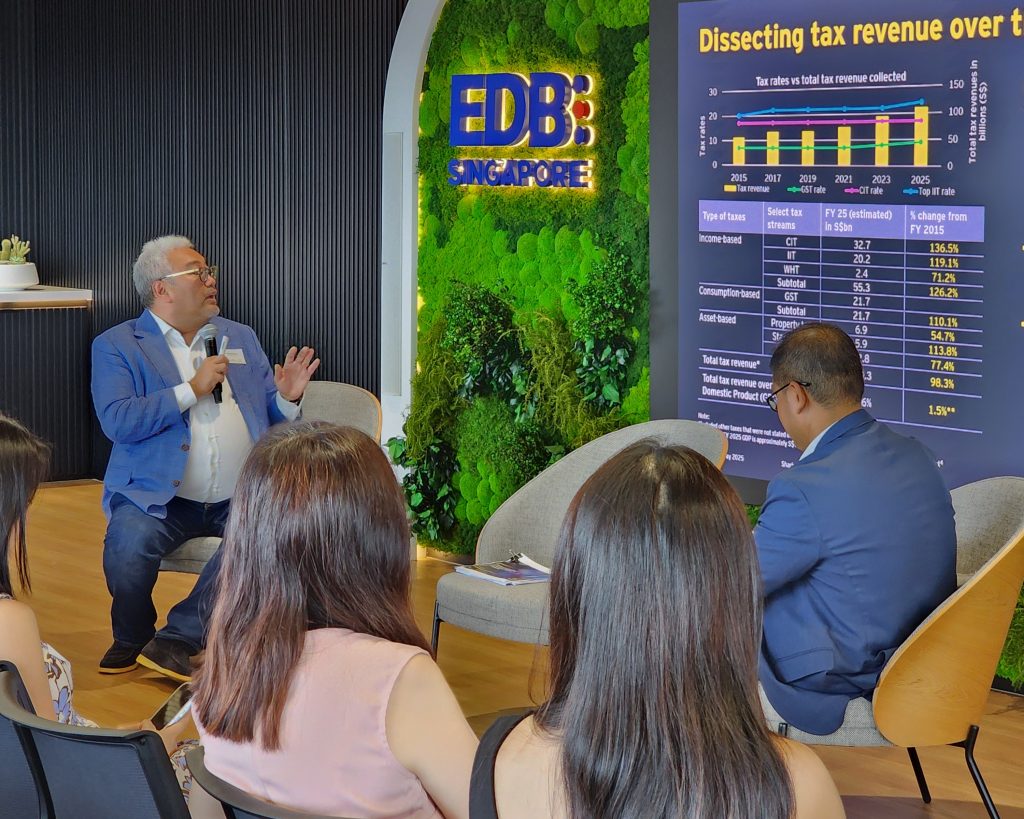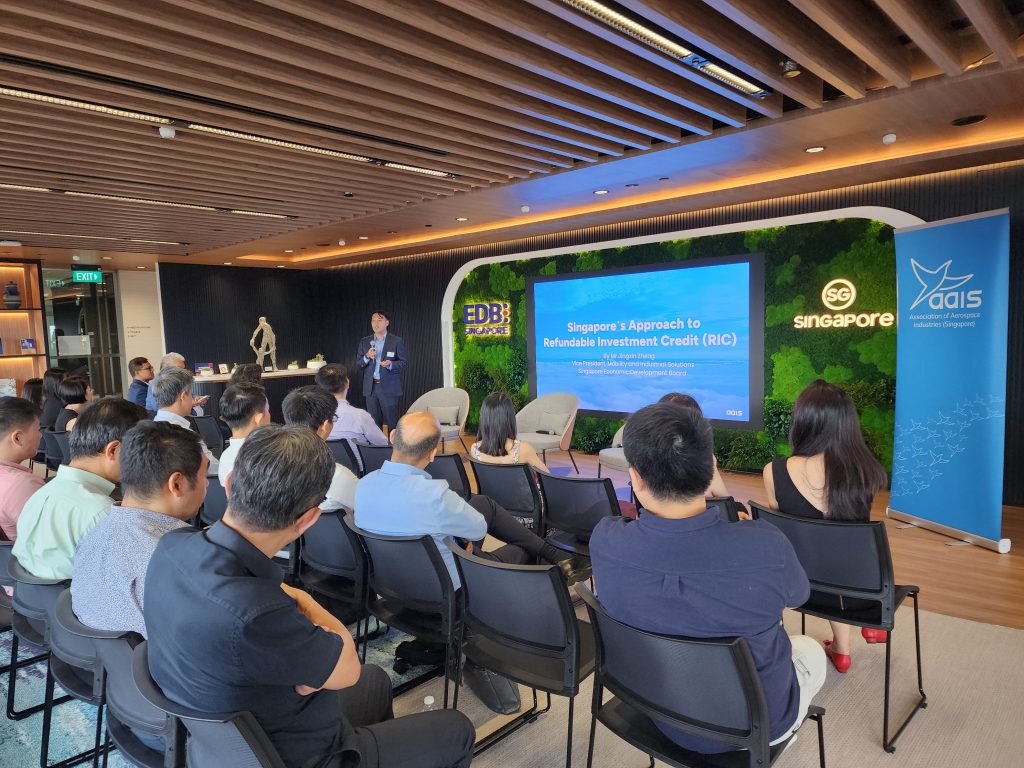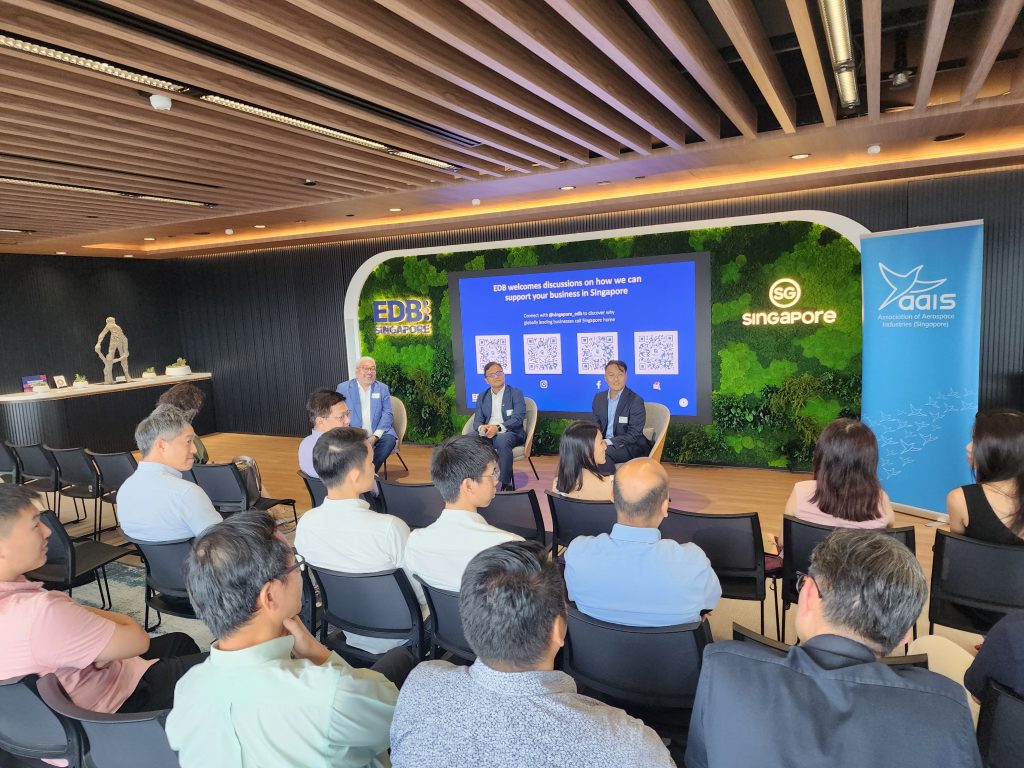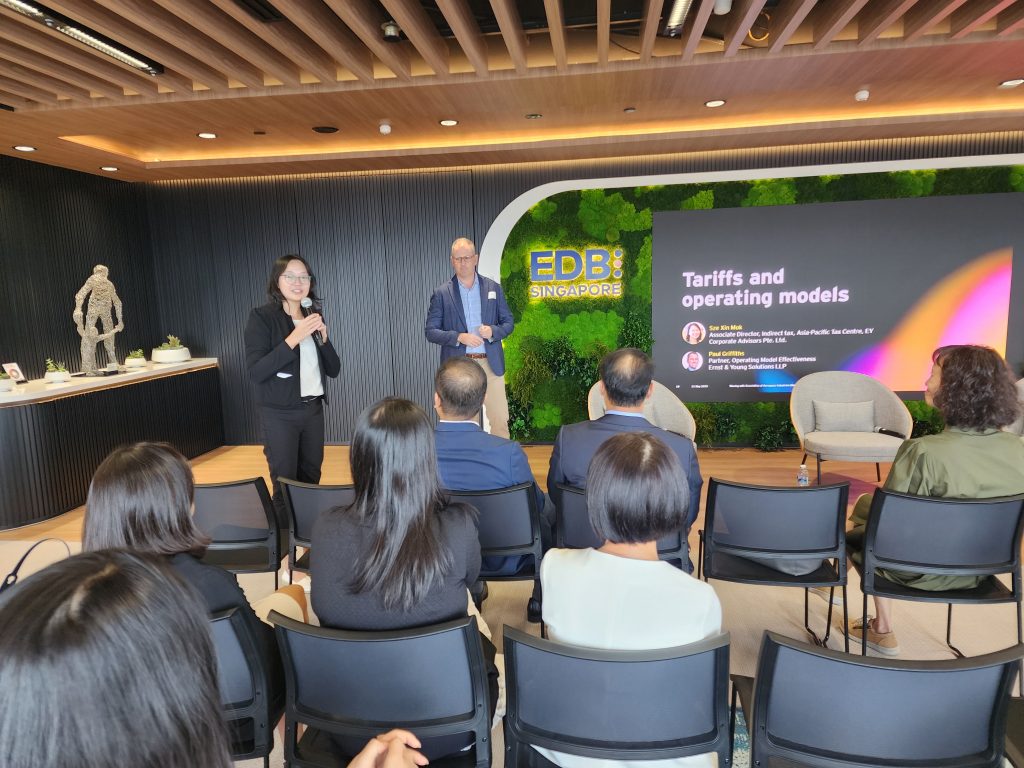AAIS hosted a timely and thought-provoking seminar, “Navigating Budget & Tariffs in 2025: Optimising Tax, Customs Strategies, and Incentives,” at the EDB Lounge on 21 May 2025. The session drew leaders and finance professionals from Singapore’s aerospace sector, providing practical perspectives amidst a dynamic global economic landscape.
In the first part of the programme, Mr Desmond Teo and Mr Johanes Candra from EY delivered an expert overview of Singapore’s corporate tax landscape and key updates from Budget 2025. While reaffirming Singapore’s competitive tax environment, they emphasised the increasing complexity of global tax reforms and their implications for international trade. Notable updates included enhancements to the Employee Equity-Based Remuneration Scheme, the introduction of the Innovation Cost Sharing Arrangement Scheme, and the expansion of the Land Intensification Allowance. Their presentation underscored the importance of aligning tax planning with operational models and global supply chain strategies for sustained agility and compliance.
Mr Zheng Jingxin, Vice President of Mobility and Industrial Solutions at the Singapore Economic Development Board (EDB) followed, offering a look at incentives and strategic support schemes available to companies. He detailed initiatives like Singapore’s Refundable Investment Credit (RIC) and other programmes offered by EDB to bolster innovation, talent development, and long-term investments.
The second part of the programme saw a highly anticipated discussion on the “Liberation Day” tariffs and their implications for the industry. Jingxin commenced this discussion by sharing findings from the recent EDB-AAIS industry survey, providing insights into how local aerospace firms are responding to global supply chain disruptions, geopolitical uncertainty, and evolving industrial policies. Drawing from his previous posting in the US, he delivered a sharp analysis of US political dynamics, industrial reactions and trends, outlining potential shocks and a reshaped competitive environment the aerospace sector must prepare for.
Mr Paul Griffiths and Ms Mok Sze Xin from EY then presented actionable strategies for navigating tariff challenges and enhancing resilience. They highlighted strategic customs planning to improve cost-efficiency and compliance, offering a structured approach for companies to address current tariff pressures and prepare for future policy shifts. The discussion also covered operating model optimisation to minimise tariff exposure, effective customs valuation techniques, product substitution, and scenario modelling.
The event saw a vibrant and engaging discussion among attendees. Thought-provoking questions were raised on global tax and customs shifts, Singapore’s long-term competitiveness in a changing world, and how our policies compare with those of other economic hubs. Participants also explored how Singapore can best position itself for the anticipated growth of aviation and aerospace in the region.
AAIS extends our sincere thanks to our speakers from EY and EDB for generously sharing their time and valuable expertise, and to all participants for making this seminar a meaningful exchange of ideas. We will continue to monitor developments in the industry and the global trade environment. We also welcome ongoing feedback on the impact of tariffs on your business. Please share your inputs via this form.
To contribute resources or expertise on trade matters, we welcome you to reach out to the AAIS Secretariat.





Recent Comments